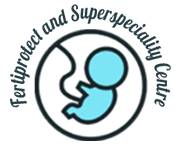Hormones play a vital role in a woman’s reproductive health. From regulating menstrual cycles to preparing the body for conception and pregnancy, hormonal balance is essential at every stage. However, when hormones become imbalanced, they can significantly affect fertility, making it difficult for couples to conceive naturally. Even when advanced options such as IVF Treatment in Kalyani Nagar are considered, hormonal health remains a critical factor that determines success.
In this blog, we will explore how hormonal imbalance impacts fertility, its influence on IVF outcomes, and why consulting an expert like Dr Archana Salve, known for her experience in fertility care, can make all the difference.
Understanding Hormonal Imbalance and Fertility
Hormones act as messengers in the body, coordinating essential functions such as ovulation, egg development, sperm production, and embryo implantation. For women, the main reproductive hormones include estrogen, progesterone, luteinizing hormone (LH), and follicle-stimulating hormone (FSH). Any disruption in their levels can disturb the menstrual cycle and reduce the chances of natural conception.
Common hormonal issues that affect fertility include:
- Polycystic Ovary Syndrome (PCOS): A condition marked by excess androgens (male hormones) that leads to irregular ovulation.
- Thyroid Disorders: Both hyperthyroidism and hypothyroidism can cause irregular periods, poor egg quality, and miscarriage risks.
- High Prolactin Levels: Elevated prolactin interferes with ovulation and can stop periods altogether.
- Insulin Resistance: Often linked with PCOS, this affects egg quality and hormone balance.
When these imbalances are not addressed, they not only lower fertility but also complicate the outcomes of assisted reproductive technologies like IVF.
Hormonal Imbalance and Its Effect on IVF
IVF is one of the most advanced fertility treatments, helping couples overcome complex reproductive challenges. Yet, the success of IVF Treatment in Kalyani Nagar relies heavily on achieving hormonal balance before and during the process.
Here’s how hormonal issues affect IVF outcomes:
- Ovarian Stimulation Response:
During IVF, fertility specialists use medications to stimulate the ovaries for multiple egg production. If hormonal imbalance exists, the ovaries may respond poorly, producing fewer or lower-quality eggs. - Egg Quality:
Good-quality eggs are crucial for healthy embryos. Imbalanced hormones can lead to immature or poor-quality eggs, reducing the chances of fertilization. - Endometrial Receptivity:
Progesterone prepares the uterine lining (endometrium) for embryo implantation. If progesterone levels are insufficient, the lining may not be receptive, leading to implantation failure. - Embryo Development:
Hormones regulate the environment where embryos develop before transfer. An imbalance may hinder proper embryo growth, lowering IVF success rates. - Pregnancy Maintenance:
Even after successful implantation, hormonal deficiencies can increase the risk of early miscarriage. Proper monitoring and hormone support are essential for sustaining pregnancy.
Symptoms of Hormonal Imbalance to Watch Out For
Many women are unaware of hormonal disruptions until they face fertility challenges. Some warning signs include:
- Irregular or absent periods
- Severe PMS symptoms
- Unexplained weight gain or difficulty losing weight
- Excessive hair growth or hair loss
- Acne or oily skin
- Mood swings and fatigue
If you notice these symptoms, it is wise to seek advice from an expert such as the Best Gynecologist in Kalyani Nagar, who can identify the underlying cause and suggest appropriate treatment.
Correcting Hormonal Imbalance Before IVF
Before proceeding with IVF, doctors usually recommend addressing hormonal health for better chances of success. Some steps include:
- Lifestyle Modifications: Maintaining a healthy diet, regular exercise, stress management, and adequate sleep can regulate hormones naturally.
- Medications: Depending on the diagnosis, doctors may prescribe medications to balance thyroid levels, lower prolactin, or improve insulin sensitivity.
- Hormonal Therapy: In some cases, fertility specialists provide hormonal supplements such as progesterone to support ovulation and implantation.
- Monitoring: Regular blood tests and scans help track hormone levels and adjust treatment accordingly.
By correcting these imbalances, the chances of a successful IVF outcome improve significantly.
Why Choose Expert Care in Fertility Treatment
Fertility challenges can be emotionally overwhelming, but with the right medical guidance, many couples achieve their dream of parenthood. Dr Archana Salve offers personalized fertility solutions with a compassionate approach, ensuring that both the medical and emotional needs of patients are addressed.
From advanced diagnostics to tailored treatment plans, consulting the Best Gynecologist in Kalyani Nagar ensures that issues like hormonal imbalance are managed before starting fertility treatments. Whether you are seeking Infertility Treatment in Kalyani Nagar or preparing for IVF, expert guidance helps improve success rates and reduces the stress of uncertainty.
Conclusion
Hormonal imbalance is one of the most common yet often overlooked causes of infertility. It not only affects natural conception but also plays a vital role in determining the success of assisted reproductive techniques like IVF. The good news is that with timely diagnosis, proper medical care, and lifestyle changes, hormonal health can be restored, improving fertility and IVF outcomes.
If you are struggling with hormonal issues or infertility, don’t delay seeking expert help. With the support of the Best Gynecologist in Kalyani Nagar, you can take the right steps toward restoring hormonal balance. Advanced solutions such as Infertility Treatment in Kalyani Nagar are available to help you achieve parenthood with confidence.


 Select an element to maximize. Press ESC to cancel.
Select an element to maximize. Press ESC to cancel.